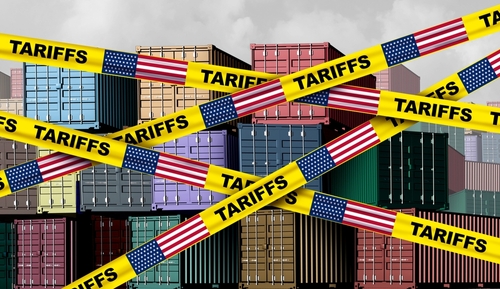1. The Congressman Who Thought China Writes Us a Check
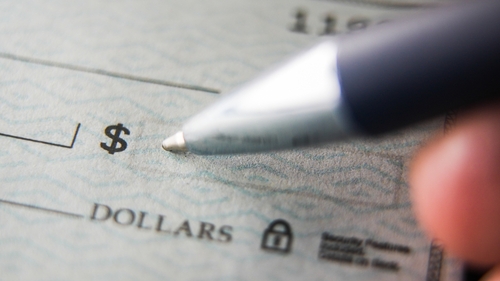
A sitting U.S. congressman stood in front of the cameras and proudly declared, “China is paying us billions in tariffs.” That statement got a lot of attention, and not in a good way. In reality, it’s not foreign countries paying tariffs, it’s American importers. These tariffs are collected at U.S. ports when imported goods arrive. The cost doesn’t just stop there, though. Those higher costs trickle down to businesses, then to consumers, who pay more for everything from electronics to food. So when this congressman said China was footing the bill, he wasn’t just wrong, he misled millions about who’s really paying, us.
2. The Guy Who Asked, “Where’s My Tariff Check?”
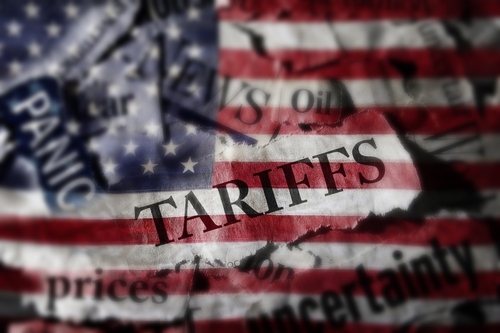
One baffled social media user shared a screenshot of his tax refund and demanded to know where his “Mexico tariff check” was. He seemed to think that because the U.S. government enacted tariffs on Mexican imports, every American citizen should receive a payout. Unfortunately for him, that’s not how tariffs work at all. Tariffs are collected from U.S. businesses that import foreign goods. There’s no rebate system or profit-sharing mechanism. And while tariff revenue does go to the government, it’s not sent to individuals like a stimulus check. The misunderstanding here wasn’t just confusion, it was a total misfire on how taxes and trade policy function.
3. A Talk Show Host Who Called Tariffs “Free Money”

A nationally syndicated talk show host declared on air that tariffs were “free money from foreign governments.” He repeated the claim several times, insisting this was a brilliant way to refill the U.S. treasury. But again, tariffs are not paid by China, Mexico, or the EU. They are taxes imposed on importers right here in the U.S. Those importers then raise their prices to cover the extra cost. This misinformation spread like wildfire because it sounded simple and strong. But simple isn’t the same as accurate. Calling tariffs “free money” is like calling your rent “bonus income” for your landlord.
4. The Small Business Owner Who Supported Tariffs, Then Went Bankrupt

In 2018, a small manufacturing business owner appeared on cable news to support the steel tariffs, saying they would “level the playing field.” He was enthusiastic, hopeful, and proud to back American steel. What he didn’t anticipate was the ripple effect. His suppliers raised prices, shipping became more expensive, and suddenly his raw material costs exploded. Within a year, he laid off most of his staff and eventually shut his doors. Tariffs can protect some industries temporarily but hurt others in the process. This owner learned the hard way that economic policy doesn’t always play fair.
5. The Meme That Claimed Tariffs End Welfare
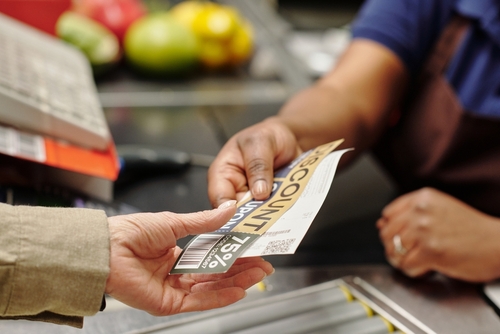
A meme went viral with bold text: “Tariff China enough and we won’t need food stamps anymore.” It got thousands of shares and likes from users who believed it was a silver bullet solution. But this claim has no economic logic. Welfare programs are funded through complex tax mechanisms, not directly tied to trade tariffs. Tariffs can cause price inflation, especially for goods like groceries and clothing. That means people relying on welfare may need even more assistance when tariffs are in place. The idea that tariffs will end welfare is not just wrong, it’s potentially harmful.
6. The Influencer Who Said Tariffs “Punish Foreign Labor”

A viral TikTok influencer posted a video explaining that tariffs are a way to punish foreign labor for “stealing American jobs.” The video gained traction for its emotional tone and patriotic framing. But the economics are all wrong. Tariffs don’t punish foreign workers, they punish importers and consumers. When prices rise, U.S. retailers cut orders, domestic prices spike, and manufacturing becomes more expensive across the board. Foreign laborers don’t pay tariffs, U.S. companies do. This influencer turned a global supply chain issue into a moral showdown, but their explanation was more dramatic than it was correct.
7. The Congressman Who Bragged About Tariff Revenue, Ignoring Job Losses

During a press conference, a congressman proudly pointed to the billions collected through tariffs on Chinese imports, calling it a “massive win” for American taxpayers. What he failed to mention was the other side of the ledger, retaliatory tariffs from China and other countries. These countermeasures hit American industries like agriculture and manufacturing hard. Farmers were forced to dump unsold crops, layoffs mounted in small factories, and entire supply chains were disrupted. The government responded by issuing bailout payments to U.S. farmers, effectively using taxpayer money to offset the damage tariffs caused. Celebrating tariff revenue without acknowledging the economic pain is like bragging about your insurance payout while ignoring the house fire.
8. The Pundit Who Said Tariffs Fix the Trade Deficit Overnight

A national TV pundit told viewers that tariffs would “wipe out the trade deficit by next quarter,” as if flipping a switch could rebalance global trade. But the trade deficit isn’t caused by cheap imports alone. It’s tied to how much Americans consume, how much we save, and the strength of the dollar. Tariffs can slightly change buying behavior but can’t reverse deep-seated economic patterns overnight. Worse, other countries often retaliate, which shrinks exports and offsets any benefit. Trade deficits are long-term trends influenced by dozens of variables. Thinking tariffs alone can fix them is wishful economics.
9. The Guy Who Thought Tariffs Lower Prices
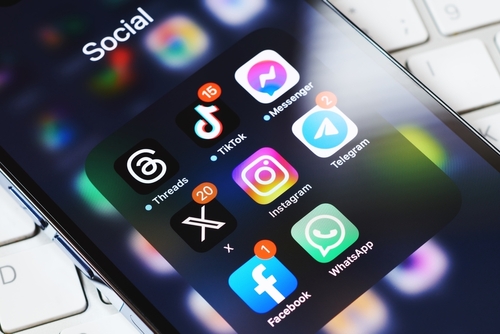
This man went viral on X when he claimed that tariffs would make “cheap Chinese junk even cheaper.” He argued that foreign manufacturers would be forced to slash prices to stay competitive. That’s not how it works. Tariffs make imported goods more expensive because importers pay a tax at the border. To keep profits stable, they raise prices for retailers, who then raise prices for consumers. No company willingly eats losses long-term just because of a tariff. If anything, they pass the pain up the supply chain. His logic flipped reality on its head and showed how even basic economic principles get lost in translation.
10. The Local Politician Who Said Tariffs Only Affect Corporations
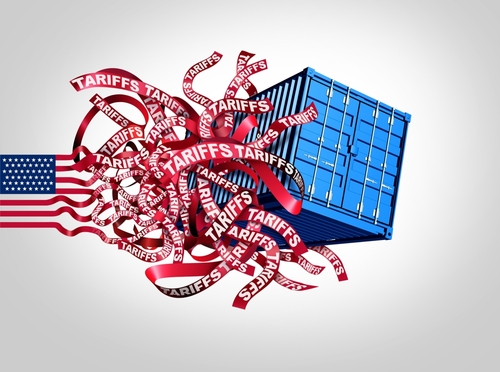
At a town hall, a city council member brushed off concerns about tariffs by saying, “Don’t worry, it only hurts big corporations.” That might play well with an anti-corporate crowd, but it’s flat-out wrong. Corporations do pay the initial tariff, but they’re not in the business of absorbing costs out of charity. Those costs are passed down, first to retailers, then to customers. It’s like a domino effect. A tariff on imported building materials makes housing construction more expensive, which raises rent. A tariff on electronics parts makes phones and laptops pricier. In the end, it’s everyday people who take the financial hit.
11. The Social Media Thread That Confused Tariffs With Sanctions

A user posted a long thread claiming that tariffs were just “financial sanctions in disguise” meant to crush hostile governments. While both tariffs and sanctions can be used for political leverage, they’re not interchangeable. Sanctions restrict access to financial systems and goods, often freezing assets or banning transactions. Tariffs are taxes, legal and routine in global trade. They don’t cut off trade, they just make it more expensive. Using the wrong terms leads to public confusion and misinformed debates. Equating tariffs with sanctions is like calling a speeding ticket a prison sentence, it exaggerates the intent and impact.
Read More: 10 Surprising Tariff Questions No One Ever Thinks to Ask
12. The Celebrity Chef Who Supported Tariffs, Then Complained About Ingredient Prices

A well-known celebrity chef initially voiced support for tariffs on European imports, praising them as a patriotic move to boost local farmers. But a few months later, he posted a frustrated video about skyrocketing prices for ingredients like truffle oil, cheese, and olive oil. He didn’t connect the dots. The tariffs he supported were the exact reason his kitchen costs exploded. Restaurants rely heavily on high-quality imports for signature dishes. When those costs rise, chefs either pay more, cut menu items, or pass it on to diners. His experience became a real-world lesson in how idealistic trade policies meet culinary reality.
13. The YouTuber Who Said Tariffs Bring Back 1950s Jobs
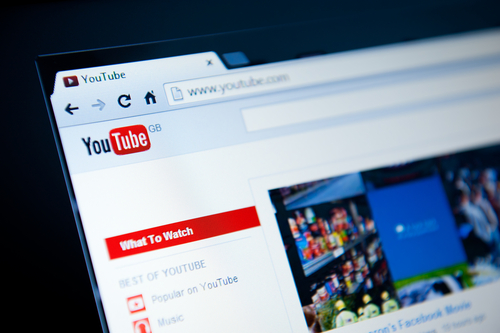
In a nostalgic video, a popular YouTuber claimed that tariffs would “bring back factory jobs from the 1950s,” complete with high wages and lifetime employment. It struck a patriotic chord, but it was economic fantasy. The job market of the 1950s was shaped by postwar growth, limited globalization, and a lack of automation. Today’s economy is far more complex. Most lost manufacturing jobs didn’t go overseas, they disappeared due to robots and efficiency software. Even if tariffs led companies to reshore factories, they’d likely use machines, not mass human labor. Tariffs can change incentives, but they can’t turn back time.
14. The Senator Who Claimed Tariffs Saved His State’s Farmers

At a campaign rally, a U.S. senator proclaimed that the current administration’s tariffs had “rescued farmers” in his rural state. He pointed to a temporary rise in soybean prices and some emergency aid checks as evidence. What he didn’t acknowledge was that many farmers were reeling from the aftershocks of those very tariffs. When China retaliated by placing tariffs on U.S. agricultural goods, demand for American soybeans, pork, and corn plummeted. Many farmers lost contracts, watched their harvests rot, and had to borrow heavily to stay afloat. The government eventually issued billions in bailout funds to offset the damage. While some aid reached struggling families, others called it a bandage over a self-inflicted wound. Claiming tariffs saved the day while omitting the chaos they caused is rewriting reality for political gain.
15. The Influencer Who Thought Tariffs Were a Loyalty Test

An Instagram influencer with a massive following once posted that “real patriots support tariffs” and anyone who questions them is “pro-China.” This attempt to make tariffs a loyalty test might score social media points, but it completely misses the policy’s economic purpose. Tariffs are not about nationalism, they’re about trade strategy. Economists from across the spectrum have warned that blanket tariffs can backfire, raising consumer prices, stalling business growth, and sparking trade wars. Supporting or opposing tariffs should depend on facts and outcomes, not on tribal loyalty. Oversimplifying them into “pro-America” versus “anti-America” makes complex policy dangerously emotional and misinformed.
16. The Instagram Post That Confused Tariffs With Tips
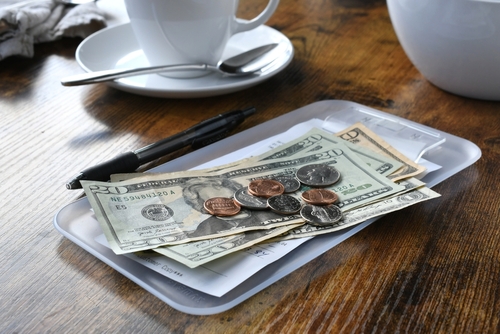
One viral post compared tariffs to tipping your waitress. “We pay a little more to support our people,” it read, implying that tariffs are a noble act of economic kindness. It’s a strange analogy. Tips are voluntary and personal, meant to reward service. Tariffs are mandatory taxes set by governments, collected by customs agents, and used to fund federal budgets. Unlike a tip, tariffs don’t go directly to the worker you’re supposedly helping. Instead, they increase the cost of imports, potentially driving up prices for everyone. While the intention behind the post might have been patriotic, it reflects a fundamental confusion about how tariffs actually operate.
17. The Twitter Thread That Claimed Tariffs Fund the Military
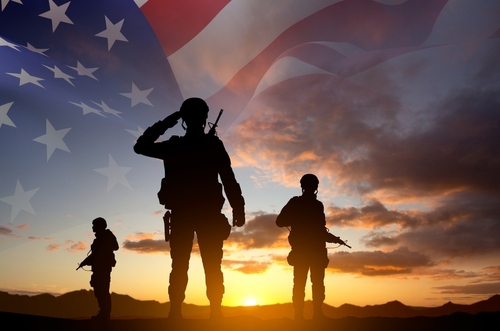
A Twitter user confidently explained that tariffs were a “brilliant way to fund our military without taxing citizens.” This idea sounds great on paper, but it’s not rooted in how federal finance works. Tariff revenue, like all government income, goes into the general fund. It’s not earmarked for defense, education, infrastructure, or anything specific. Also, the total revenue from tariffs, even in aggressive trade climates, is a drop in the bucket compared to defense spending, which regularly exceeds $800 billion per year. Suggesting tariffs are a defense funding mechanism is misleading at best and dangerously inaccurate at worst. It promotes the idea that we can fund massive programs through indirect taxes, which isn’t how modern economies function.
18. The Governor Who Thought Tariffs Were the Same as Sales Tax
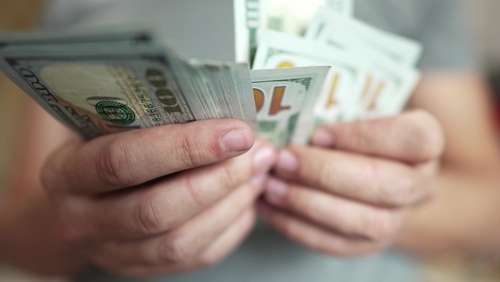
At a press conference, a state governor tried to explain tariffs by comparing them to sales taxes. “You pay a little more at the register,” he said, “just like when you buy something at the store.” That analogy falls apart quickly. Sales tax is transparent, calculated on your receipt, and applied at the point of sale. Tariffs, by contrast, are paid by importers at the border, before products even reach stores. They’re baked into wholesale costs, so most consumers don’t even know they’re paying more because of them. Unlike sales taxes, tariffs can also provoke international retaliation, disrupt supply chains, and create geopolitical tension. The governor’s oversimplification was well-intentioned but completely missed the bigger economic picture.
19. The Magazine That Touted “Tariff Tuesdays”

A niche industry magazine tried to spice up trade coverage with a weekly column called “Tariff Tuesdays,” framing it like a feel-good celebration of American toughness. In one issue, they profiled steel lobbyists, praised protectionist policies, and called tariffs “economic muscle.” Ironically, in the same edition, they ran a feature on small manufacturers struggling to stay afloat because of rising input costs caused by, you guessed it—tariffs. The contradiction was glaring. While large domestic producers of raw materials might benefit short-term, companies that rely on those materials suffer. Higher prices for steel, aluminum, and other imports ripple across industries, hitting everything from construction to cars. “Tariff Tuesdays” might’ve been catchy, but the narrative ignored the real-world costs.
20. The Protester Who Demanded “Tariff the Virus”
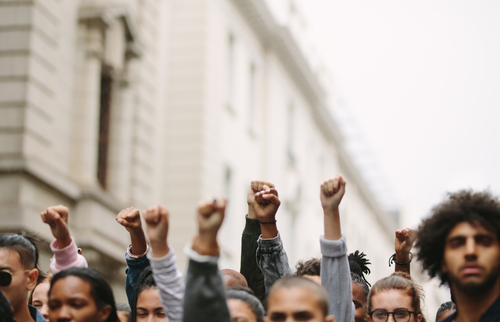
During the early days of the COVID-19 pandemic, a protester outside a state capitol held a large sign that read, “Tariff the Virus, Not the People.” Photos of the sign quickly circulated online, sparking both ridicule and confusion. While the protester’s anger was clear, the message was nonsensical. Tariffs are taxes on imported goods, not tools for dealing with viruses, which aren’t traded commodities. This bizarre suggestion likely stemmed from frustrations over global supply chains, especially those linked to China, but it reflected a deep misunderstanding of both trade policy and public health strategy. You can’t tax a virus out of existence. The protester’s statement showed how emotionally charged slogans often replace informed discourse when anxiety and misinformation collide.
21. The Campaign Ad That Promised “Tariff Jobs”

In one of the more confusing political campaign ads in recent years, a congressional candidate promised to “create tariff jobs in every district.” The ad offered no explanation, just patriotic music, factory footage, and phrases like “bringing America back.” The term “tariff jobs” is not an actual category in any industry. It’s unclear whether the candidate meant jobs that would appear because of tariffs, jobs managing tariffs, or simply jobs he hoped would result from economic chaos. Tariffs can sometimes protect specific industries temporarily, but they also raise costs, slow growth, and invite retaliation. Without a clear plan, the ad’s message sounded impressive but made no economic sense. Using jargon like “tariff jobs” might score points with uninformed voters, but it doesn’t translate into practical policy.
22. The Radio Caller Who Thought Tariffs Were an Export

During a live radio broadcast on economic policy, one caller excitedly declared, “We’re finally exporting tariffs now, just like we should’ve done years ago!” The host paused, unsure how to respond. Tariffs aren’t products or services, they’re taxes. You can’t export a tariff. What the caller likely meant was that other countries were finally being forced to “pay” in response to U.S. trade action. But again, that’s not how it works. When we raise tariffs, we tax our own importers, not foreign governments. Exporting implies we’re sending something out. Tariffs are applied at our borders, collected by our customs agencies, and paid by our citizens. The mix-up wasn’t just about language, it revealed a complete misfire on the basics of international trade.
The Cost of Misunderstanding Tariffs
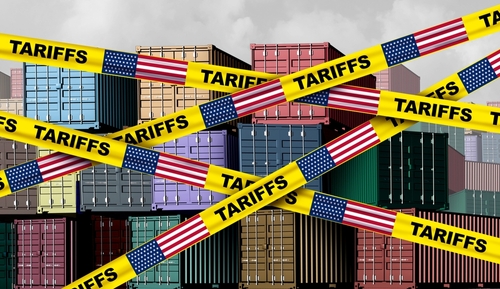
Tariffs are not just a wonky part of international economics, they affect what you pay for cars, groceries, electronics, and more. Despite this, many Americans still think tariffs are a tool to punish foreign countries, a quick fix for job loss, or even a form of patriotic fundraising. In reality, they’re taxes collected at home, passed on through supply chains, and ultimately felt at the checkout counter. Misunderstanding them isn’t just a matter of bad math, it leads to bad policy, higher prices, and unnecessary political conflict. As these 22 examples show, even public figures, influencers, and politicians regularly get it wrong. The best way to use tariffs is strategically and sparingly, with full knowledge of their downstream effects. Otherwise, we risk cheering on policies that quietly hurt the very people they’re supposed to help.
Read More: 5 U.S.-Made Products That Might Actually Get Cheaper With Tariffs
